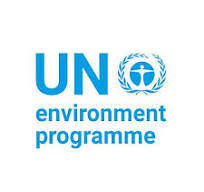New FDIC economic inclusion plan melds inclusion and community development
The Federal Deposit Insurance Corp. released a revised economic inclusion strategic plan Thursday, aiming to advance people's personal financial stability by encouraging lending in underserved communities.
‘Not all fintech is good for people’: Jennifer Tescher
Only a third of Americans are financially healthy, according to Tescher, who founded the Financial Health Network.
Jack Henry: Making Financial Health a Brand Promise
Financial technology company Jack Henry™ partnered with the Financial Health Network to help financial institutions and their accountholders alike break down barriers to financial health.
Alumni Spotlight: Celebrating the Women Shaping Financial Health
In honor of Women’s History Month and 20 years of financial health, we’re highlighting two women who have been a critical part of our journey and progress.
To the Women Who Came Before Me, and Those on Their Way
A personal reflection from our Senior Director, Workplace and Financial Health Equity, on the financial barriers women have endured across generations and how to break the cycle.
BECU: Leveraging Data To Improve Member Savings and Financial Health
Washington-based credit union BECU partnered with the Financial Health Network to better understand, measure, and improve its members’ financial health.
These Black Founders Are Paving the Way Toward Equity in Financial Health
In honor of Black History Month, we’re spotlighting three Black founders and FSL alumni who are on the forefront of racial equity in financial health.
Roughly Half of Americans Are Using This Strategy to Fight Inflation. Should You?
Consumers have been feeling the brunt of inflation since it started surging in mid-2021. The Federal Reserve has been trying to combat inflation by raising interest rates. And while that's helped, living costs are still elevated as of early 2024.
Driving Impact on Financial Health and Inclusion of Individuals and Businesses
Join UNEP FI for the launch of the newest guidance from the Principles for Responsible Banking (PRB) titled, "Driving Impact on Financial Health and Inclusion of Individuals and Businesses: From Setting Targets to Implementation".
UNEP FI launches newest guidance on Financial Health and Inclusion for banks
The United Nations Environment Programme Finance Initiative (UNEP FI) has unveiled its latest initiative aimed at advancing the Principles for Responsible Banking (PRB).
Prudential Financial: Closing the Wealth Gap for Black and Brown Communities
Financial security should be within everyone’s reach. That’s why Prudential is doubling down on helping Black and Brown Americans achieve this goal.
How Companies Can Help Employees Save for Emergencies
Under a new federal law, employers can help some workers guard against financial distress. But setting up these rainy day funds can get a bit tricky.









